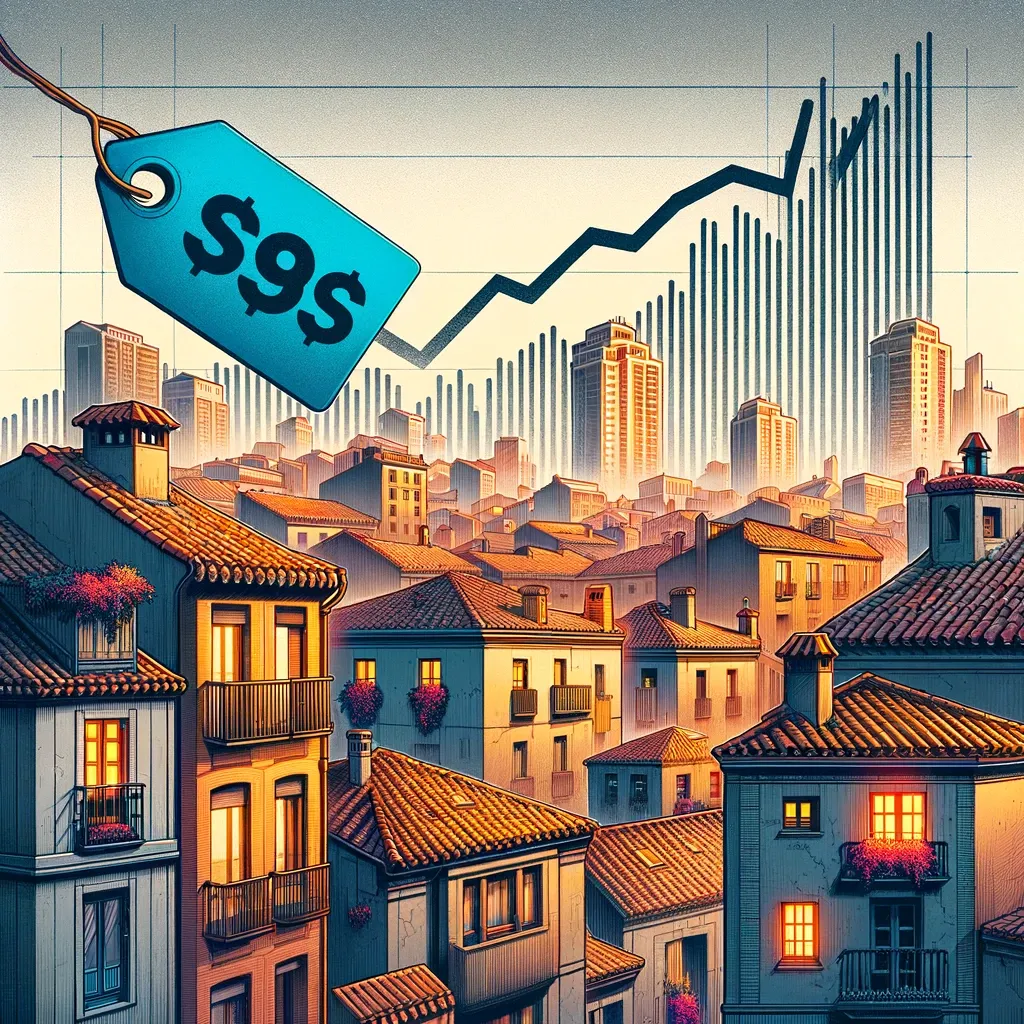The real estate market in Spain: the EU's perspective and its conclusions are stable.

The European Commission's experts believe that in our country, prices do not match the income of the population.
The cost of housing in Spain continues to rise and has exceeded the mark of 2,000 euros per square meter for the first time since 2008.
Among the factors contributing to this growth are a lack of supply, demand pressure, and high construction costs.
Last year, there was an annual increase of 7.2%.
According to the real estate portal Idealista, buying a home has become more expensive compared to last year in all autonomous regions, capitals, and provinces of the country.
This complicated situation has led the European Union to warn Spain that housing prices are inflated.
Inspectors. Technicians from the European Commission state that in two-thirds of the EU, prices do not match the income levels of the population.
In their latest report, which can be read here, they explain that this happens when prices diverge from the wage levels of future buyers.
In this regard, they warn that prices continue to rise in countries like Spain and Portugal, despite already being inflated.
In the case of Spain, they are inflated by 20%.
Trend towards decline (except here).
According to a study, last year housing prices on the continent increased by an average of 9%, which is a slight slowdown compared to the previous year due to inflation and the rise in ECB interest rates.
But while in countries where the market is inflated, like Luxembourg (up to 60%), the Czech Republic, the Netherlands, and Sweden, prices have started to decrease, in Spain, Greece, and Portugal, they continue to rise, which poses a greater risk.
Why not in Spain?
As Enrique Losantos, the director of JLL in Spain, one of the largest global consulting firms in the real estate industry, explains in this article for El Confidencial, housing prices should decrease by 20-25%, but since there is no supply, prices are not falling.
Wouter Tiry, an economist at ING, said the same thing in another article: "Housing prices in Spain continue to rise, unlike in many other eurozone countries. Despite the negative impact of rising interest rates, demand for real estate remains strong, which, combined with insufficient supply that has not reached critical mass, supports price growth."
In other words, demand continues to grow, while supply is very limited.
13 May 2025
14 May 2025
14 May 2025
14 May 2025

The ECB has already talked about this. To the extent that construction companies were unable to obtain even 150,000 necessary permits to meet the demand created by the construction of new homes.
In Spain, this is a very profitable asset.
On the other hand, as Brussels points out in its analysis, one of the reasons for this inflated cost (and increased demand) in our country is the prospects of large investments in real estate.
Owning property in Spain is very attractive, especially in cities and along the coast, where the impact of tourism is the greatest, because the returns from short-term rentals are very high.
By cities.
Currently, the Balearic Islands are the most expensive region for purchasing real estate (3,987 euros/m²).
Following them are Madrid, the Basque Country, and Catalonia.
The cheapest regions are Castilla-La Mancha, Extremadura, and Castile and León.
Due to this same limitation in supply, another study conducted by Tecnocasa specialists showed that there is an overvaluation of housing in major markets by individuals of up to 18%.
In Barcelona, for example, owners are asking for a price that is 18% higher than the actual market value, according to the organization.
The same thing is happening in Valencia.
In Madrid and Seville, the markup is 16%, while in Malaga it is 15%.
Lazaro Cubero, the analysis director at the Tecnocasa Group, notes that this is a growing trend, but it lacks logical justification: "This inflation of property prices in the current economic situation makes no sense, and these properties are the first to undergo significant discounts to align with the new economic reality."
Tags
Comment
Popular Offers

Subscribe to the newsletter from Hatamatata.com!
Subscribe to the newsletter from Hatamatata.com!
I agree to the processing of personal data and confidentiality rules of Hatamatata













